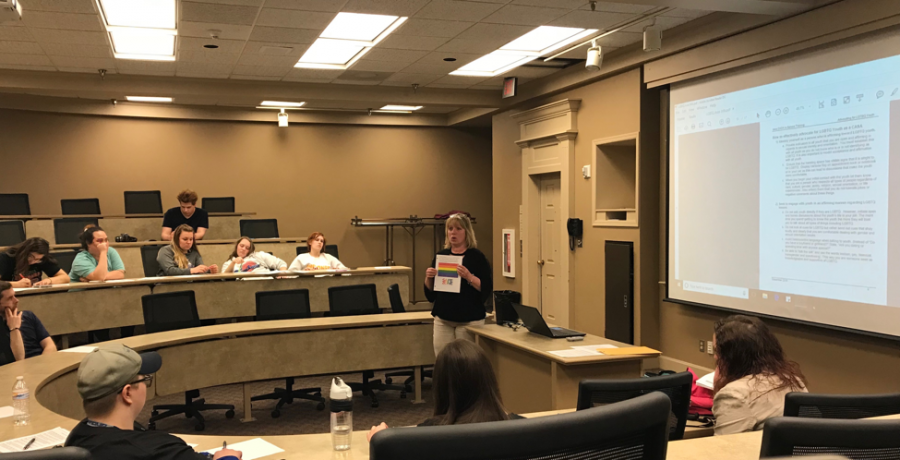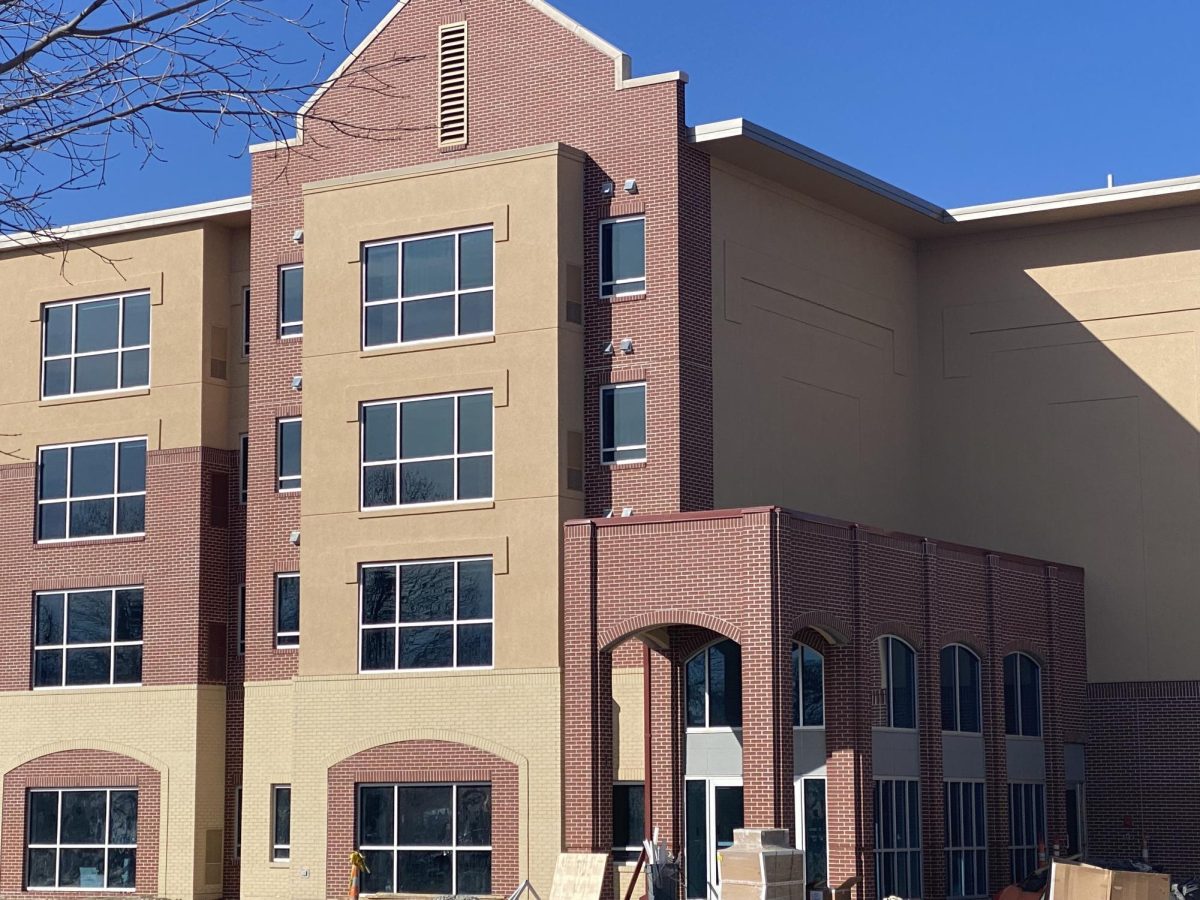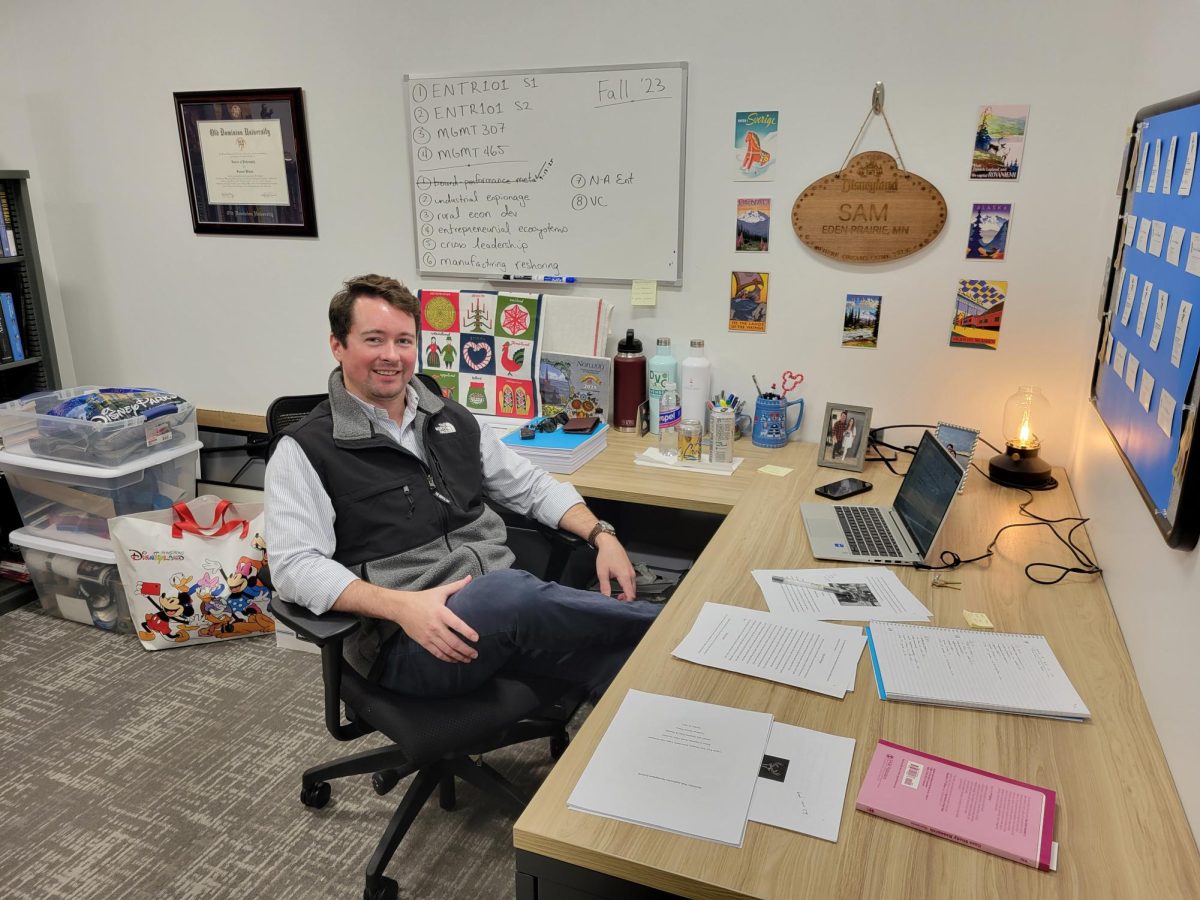BVU holds “Stop The Hate, Learn How To Prevent It” ACES
May 1, 2018
How do we stop and prevent the unnecessary, negative hate that happens in our society today? A scholarly ACES event was held on Monday, April 23, 2018 to discuss prevalent issues of what the LGBTQ+ (Lesbian, Gay, Bisexual, Transgender, Queer or Questioning) community has to deal with. It is everyone’s responsibility to take action for people in these positions who are being oppressed. This event was held in Hanson 8 from 7 P.M. to 8 P.M.
Taylor VanHorn, sophomore psychology major, opened the ACES by speaking about Callie Friesen’s Literature course and the informative books that they have been reading about LGBTQ matters, including “Rethinking Normal” by Katie Rain Hill, and “Some Assembly Required” by Arin Andrews.
She then introduced Kathy Fritz, Buena Vista County’s Court Appointed Special Advocacy Coordinator, to talk, teach, and discuss topics within LGBTQ+. Fritz graduated from Briar Cliff with a Bachelor of Social Work (BSW) degree. She also worked with Centers Against Abuse and Sexual Assault (CAASA) for fourteen years. She has worked with a variety of youth, from infants to people eighteen years of age.
Fritz believes that everyone is responsible for standing up for LGBTQ+ subjugation. There is a lot of information about it, which is why this ACES was organized, to educate students.
“After 29 years in the social work field, I am still learning, and you guys will too,” said Fritz.
When she first began in this field, Fritz did not know what certain terms were, such as cisgender (denoting or relating to a person whose sense of personal identity and gender corresponds with their birth sex) and biphobia (dislike of or prejudice against bisexual people). People in the LGBTQ+ community would rather have you come and ask them questions about this information than have you talk behind their backs.
A true/false activity was conducted to engage students and increase their knowledge. Here are a few of the phrases that were used to quiz the audience on what they already knew:
“People who are lesbian, gay, and transgender can usually be identified by certain mannerisms or physical characteristics.” This is false. There are all different kinds of people who may be one of these with characteristics all over the board.
“We do not know what causes homosexuality.” This is true. No research conducted has conclusively established the causes of sexuality.
“Homosexuality is a type of mental illness and can be cured by appropriate psychotherapy.” False. Homosexuality has been removed from the official list of mental illnesses.
Along with these true/false statements, safety risk factors and challenges were shown at this event. LGBTQ+ community members may have feelings of being different from a very young age, be afraid of expressing their feelings or being rejected when coming out as LGBTQ+, be more apt to substance abuse, have mental health problems, and experience depression or suicidal thoughts.
Once people come out as LGBTQ, they may experience bullying and rejection from family members, supportive figures, peers, or society members. People that have these unnecessary results from coming out may run away, become homeless or be within the Juvenile Justice System.
Attempts at self-harm, self-mutilation and suicide may also be made. Some of these suicide attempts are successful.
Between four and 10 percent of the entire population is gay. In the public school system of around one million people, there are at least 40,000 to 100,000 gay students. LGBT students at schools with comprehensive policies on bullying and harassment are much more likely to report it to school authorities, who will then in turn respond much more effectively. These students are also twice as likely to say that they will not finish high school or attend college.
“If a family is accepting of their child with LGBT issues, then their child is able to manage their way through society,” said Fritz.
Family rejection makes an LGBT member three times more likely to partake in illegal drug use. The average GPA for students was a half grade lower than that of other students. These negative effects are all what leads people down a bad path.
This type of negative reaction causes this type of suicide to be the second leading cause of death in ages 10-24. LGBT youth are four times more likely to try to commit suicide than straight peers.
People may be unlike you, but that does not mean that you need to treat them in a different manner than you would treat anyone else. Negative reactions can cause horrible events to occur, which are irreversible or extremely hard for people to dig themselves out of.
The advice Fritz offers is this; an attitude of acceptance is what people need to have in our society today. Know that people are different, but be accepting of them. Welcome them to do things with you, and ask them questions. They will be more than happy to share with you.
“Educate yourself,” said Fritz. “Get to know about it. This is something that’s not going to change in our society. Be there for your peers. Just get to know them.”
Help a friend who may be in this type of trouble. A positive attitude and a welcoming embrace to others will be much more beneficial. You never know, one little “hello,” or even just a smile can be the support or comfort someone needs.







